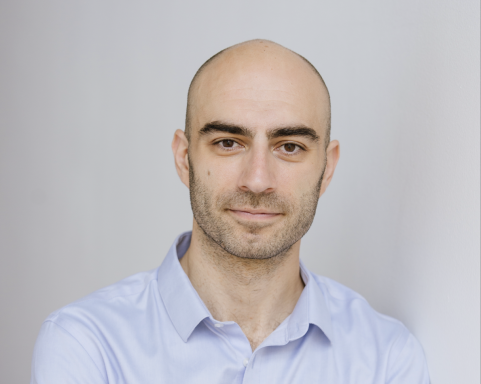Meet David Acunzo, Assistant Professor in the Division of Perceptual Studies

David Acunzo, PhD, joined the Division of Perceptual Studies in the UVA School of Medicine in October 2023. Dr. Acunzo shared with us about his research and personal interests.
Brain Institute: Briefly describe your current research projects and interests.
Dr. Acunzo: I am generally interested in human experiences that may be interpreted as being paranormal or supernatural, such as mystical experiences, after-death communications, or telepathic and precognitive experiences – they can be called anomalous or extraordinary experiences. I am particularly interested in studying them in an experimental setting using induction techniques such as hypnosis and suggestion, sensory stimulation, sensory deprivation, or meditation. For instance, I have a project on mystical-type experiences induced by hypnosis and suggestion, to use as a potential intervention for well-being applications.
How does your research connect with the field of neuroscience?
I am studying these topics using a cognitive neuroscience approach, measuring brain activity non-invasively with functional magnetic resonance imaging (fMRI), electroencephalography (EEG), and soon functional near-infrared spectroscopy (fNIRS). The challenge is to link neural patterns with the reported subjective experiences, which are complex and often ineffable.
Why did you decide to come to UVA?
I was offered the opportunity to work at the Division of Perceptual Studies (DOPS), a research-only division within the Department of Psychiatry and Neurobehavioral Sciences whose mission is to study mental phenomena that challenge our current worldview on consciousness. DOPS is one of the few academic places in the world focusing on anomalous experiences, so this was an opportunity I couldn’t miss! Historically, empirical research at DOPS has mostly consisted in field studies and surveys as they focused on spontaneous phenomena such as children with apparent memories of past lives or near-death experiences. I was specifically hired to accelerate the development of experimental and lab-based approaches of anomalous and extraordinary experiences, bringing in my expertise in neuroimaging.
What's the best part about your job?
Knowing that I work in a unique place focusing on a topic that is potentially of paramount importance if we want to better understand what the mind is. We work on phenomena that challenge our current understanding of how the mind works – namely that it is exclusively generated by, or strictly equivalent to, physicochemical processes happening inside our skull – but that are largely ignored by psychologists and neuroscientists.
Another is that my job is a very good topic at parties! Many people are fascinated by the phenomena we study, and very often have very interesting stories of extraordinary experiences to tell me – some hadn’t shared their stories with anyone before , because they are often pathologized or dismissed. It reassures them to learn that some of these experiences are not uncommon.
What led you to a career in science and neuroscience?
I have been interested in science for as long as I can remember. Very early on, I was fascinated by the figure of the scientist whose role in society is pushing the boundaries of knowledge and seeking the truth, even if it goes against the beliefs or worldwide view of the time.
I became specifically interested in neuroscience when I was working in the field of computer vision in the industry, after have graduated from my engineering degree. I read about how some pattern recognition algorithms were inspired by models of the human visual cortex. This piqued my interest, and a few months later I applied for a graduate program in computational neuroscience at the University of Edinburgh, in the UK.
What advice do you have for trainees?
For graduate students, choose your supervisor wisely. The specific topic is important, but the choice of supervisor even more so. You can always change your topic later. Choose an advisor you get on with well, who will be supportive, and from whom you can really learn.
What's something new that you've learned recently?
I recently learned about the link between the pricing of options (i.e. the financial product) and the discovery of atoms and molecules. Louis Bachelier developed a mathematical model for the price of stocks in his PhD thesis in 1900. The equations were the same as the ones proposed by Albert Einstein in 1905 to describe Brownian motion, proposing that this movement was due to the movement of microscopic particles. I am always amazed when drastically different phenomena or fields can relate to each other in such unexpected ways.
Where are you from originally?
I am from a small medieval town in Eastern Brittany, France, called Dinan. I have travelled a lot though, as I did my postgraduate studies at the University of Edinburgh in Scotland, and pursued post-doctoral research at the University of Trento in Italy and the University of Birmingham, England.
What's your favorite way to spend a day off?
That depends on my mood. I like to unwind with friends around a drink or dinner, and watching movies. I am also an Argentinian tango dancer, so I go social dancing or take classes when I have the opportunity.
What is a surefire way to make you laugh?
I spent many years in the UK and learned to enjoy the British humor: sometimes dark, but most often absurd and deadpan. Otherwise a funny cat-related reel always gets me laughing!